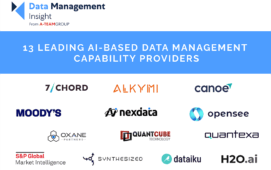Rather than going through a complex chain of interpretation by data vendors and internal processes, prospectus data should be made available in an electronic format directly to the market, suggested Francis Gross, head of the external statistics division at the European Central Bank (ECB). “This would require drastic changes to the current prospectus process and the production of electronic data sheets in a standardised format, but it would reap many benefits in terms of costs to issuers and the industry as a whole,” he explained.
Gross told FIMA delegates that the benefits to industry of having “clean reference data on tap” would include better decision making by policy makers and financial institutions due to improved transparency, as well as the obvious cost benefits. “It would remove some of the duplication of data and reduce risks due to increased transparency and a knock on effect of this would be more trust from the regulators,” he said. “If there is transparent trusted reference data for risk and compliance purposes, then regulators will not have to take such a hard line.”
He went as far as suggesting that all issuer data could be available for free: “The source is public and the database would therefore be publicly available and free of charge.”
A competition neutral data model and a standard taxonomy for reference data attributes would be required before the changes could be implemented. Moreover, the issuers would become responsible for the accuracy of the electronic record containing the prospectus data. Gross suggested that rather than being taken out of the process altogether, vendors could offer ancillary services such as record maintenance services to update prospectus data as it changes.
As well as speculating about the future position of the ECB in the prospectus issuance process, Gross informed delegates about the current reality and the progress his institution has made with its Centralised Securities Database (CSDB). The CSDB creates golden copy from commercial and public data sources at the level of “micro data” and includes coverage of securities data, issuer data and holdings data, he explained. “We have made significant progress but there is still a way to go. Our global securities database working group is focused on developing the system for the future.”
Subscribe to our newsletter




